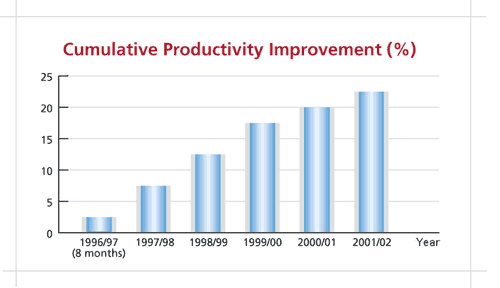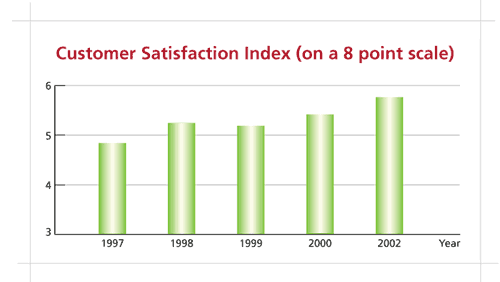Q: How will clients benefit from "untying"?
A: The key benefit is choice - "untying" allows clients to choose either EMSTF or alternative service providers in the market. Clients also benefit directly from the significant service improvements and price reductions that EMSTF has made in the past few years. For example, we have introduced many value-added features, improved client communications, created a more customer-focused organisational structure to deliver one-stop integrated services, and brought in a client manager system. Anticipating client needs, we have upgraded our internal IT capabilities while at the same time introducing IT solutions and services. Clients now have a much more responsive and customer-friendly partner.
Q: What should clients do when they are "untied"
A: Clients should refer to Financial Circulars 9/1999 and 6/2001 for operational details on "untying". From a customer's perspective, if they are satisfied that EMSTF is capable of delivering services in a cost-effective manner, and if inviting competitive bids for such services is not appropriate, they can enter a service level agreement with EMSTF directly.
 Q: How would clients know if EMSTF services
are cost effective?
Q: How would clients know if EMSTF services
are cost effective?
A: Since customer departments have different needs, each will have its own criteria and considerations. From our perspective, our E&M services are uniquely suited to government departments and public sector organisations where reliability, security and accountability are the key. The size of our operations also means economies of scale and bulk savings for our clients.
Q: What has the impact of "untying" been on EMSTF?
A: "Untying" introduced the element of competition which has changed the way we operate in a positive way. We have become more customer-focused, emphasising continuous service and productivity improvements, cost controls and effective communications. We have introduced extensive training and cultural change programmes, while upgrading our IT capabilities to match client needs with major enterprise management systems such as our Enterprise Resources Planning. We have also become more sensitive to market trends in order to stay competitive. We did lose some business as a result of "untying", but the percentage lost has been minimal and has been more than offset by EMSTF's overall growth in the past few years.
 Q: Why should clients consider using EMSTF?
Q: Why should clients consider using EMSTF?
A: For all the reasons mentioned above. These include total reliability, a full range of engineering skills, a strong service team that can be mobilised anywhere anytime, and value-added services at competitive prices. Our knowledge and understanding of government procedures is another important benefit for clients - we can help them do things right the first time. If you look at the number of departments who continue to use our services after "untying", there have to be strong reasons for their decision. I believe it is the reliability, quality of service and peace of mind that we bring.
Q: What has been the experience of customers "untied" in earlier phases? Have any gone to alternative suppliers?
A: Happily, the majority of our clients have welcomed EMSTF's improvements and have continued to use our services. Currently, around 30 departments hold long-term service level agreements with us, ensuring that they enjoy continuity of service with a wide range of value-added facilities as part of the package. In cases where clients have initiated competitive bids for their business, as with any other business, we have won some and lost some. What is important is that we have learnt a lot from the process, making EMSTF even more competitive. We believe we are well on the right track to meeting the challenges and opportunities of the future.





